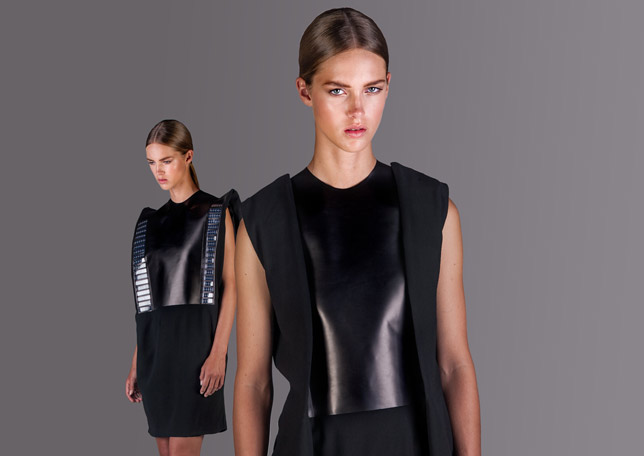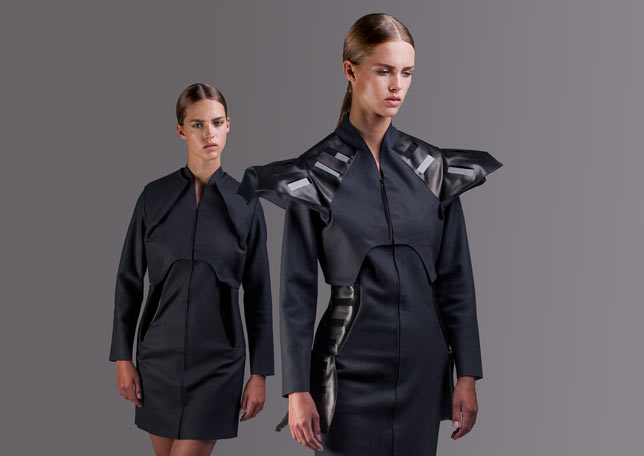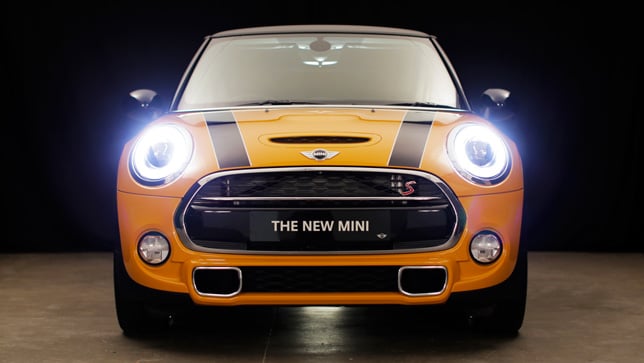Wearable technology needs to "transcend the world of gadgets"
Dezeen and MINI Frontiers: integration with the existing fashion supply chain is crucial to the development of a successful wearable technology industry, says solar-powered dress designer Pauline van Dongen.

"We see a lot of exciting [wearable technology] projects, a lot of design prototyping going on," says van Dongen, who was speaking at the Wearable Futures conference held in December at Ravensbourne. "It's really amazing how quickly things are evolving."

Despite this, van Dongen says that unless the resulting products are comfortable and visually appealing fashion pieces in their own right, they won't take off.
"It's very important to stress the wearability," she says. "I think it's the only way to connect to the market, to connect to people and to transcend the realm of gadgets."

Van Dongen launched her womenswear label, which specialises in combining fashion and technology, in 2010. Her Wearable Solar range consists of a dress that incorporates 72 flexible solar panels as well as a coat that has 48 rigid crystalline solar cells.
"Both prototypes have a modular element where you can reveal the solar panels when the sun shines but you can also hide them and wear them close to your body,"she explains. "When you wear them in full sun for one hour they can generate enough energy to charge your typical smartphone 50 percent."

Van Dongen is aware that there will be significant production challenges to overcome before products like hers become commercially viable.
"It's important to think how all these new designs can be integrated into the production chain," she says. "An important next step to take wearable technology to another level is to look at the commercialisation of it."

This is the fourth movie from the two-day Wearable Futures conference that explored how smart materials and new technologies are helping to make wearable technology one of the most talked-about topics in the fields of design and technology.
In the first movie, designer of Dita von Teese's 3D-printed gown Francis Bitonti explained how advances in design software mean "materials are becoming media". In the second, Suzanne Lee explained how she makes clothes "grown using bacteria." In the third, Shamees Aden explained how scientists are combining non-living chemicals to create materials with the properties of living organisms.
The music featured in the movie is a track by DJ Kimon. You can listen to his music on Dezeen Music Project.
Dezeen and MINI Frontiers is a year-long collaboration with MINI exploring how design and technology are coming together to shape the future.

